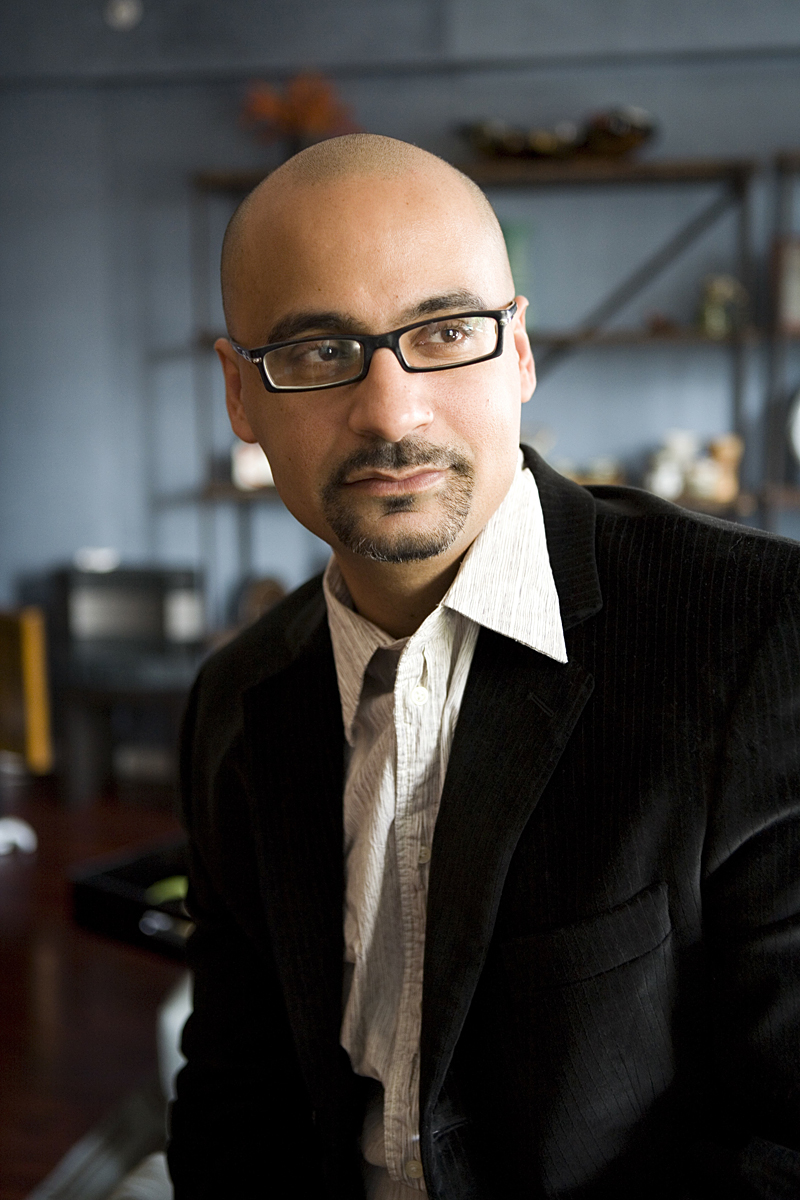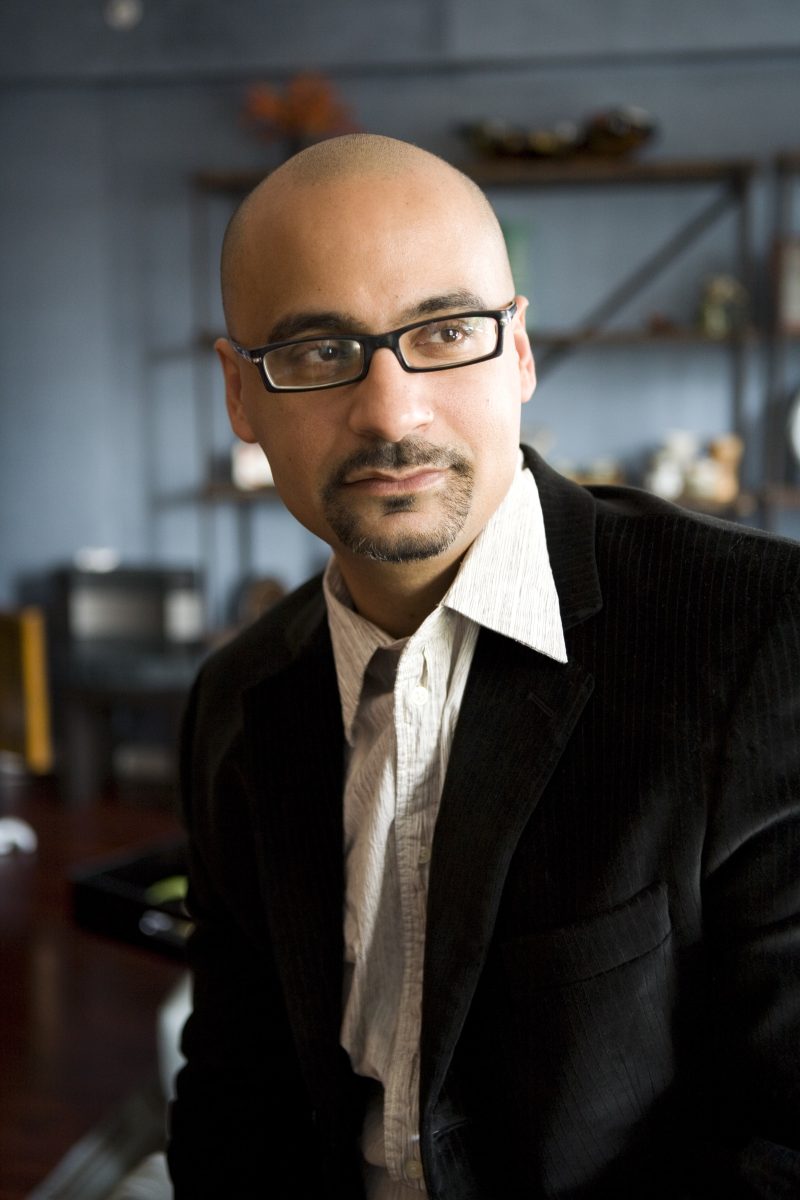Story by Leah Olson
World renowned and award winning author Junot Diaz will visit the University of Oregon on April 29. The event is open and free to the public and begins at 8:30 p.m. in Prince Lucien Campbell 180. Earlier that day from 3 to 3:50pm he will also be speaking with Robert D. Clark Honors College students and faculty in the Honors College library.
Diaz won critical acclaim for his novel, The Brief Wondrous Life of Oscar Wao, which received the 2008 Pulitzer Prize for Fiction. Born in Santo Domingo, Dominican Republic, Diaz immigrated to New Jersey in 1974 at the age of six. Much of his writing delves into the immigrant experience: what it is like being a stranger in a foreign place and the experience of being separated from homeland, family and culture. Diaz is a creative writing professor at the Massachusetts Institute of Technology (MIT) and the Fiction Editor for the Boston Review. Ethos got a chance to e-mail Diaz about his past success as an author, current project, and future plans.
Leah Olson: Who are your favorite fiction authors? What is it about their writing style that captivates attention?
Junot Diaz: Octavia Butler because she most clearly confronts the problematic history andnature of the New World experience. She’s also a beautiful terse writer. Also, Samuel R. Delany because he is brilliant and beyond compare and because from him come the deepest most necessary stories about our civilization. And because he’s beyond smart and it shows in everything he writes. Then Frank Herbert’s Dune because for all of its colonial claptrap (white boy saves brown race) it speaks to some of the secret histories that made people like me possible.
LO: You recently received the Barnes & Noble Writers for Writers Award, which “recognizes authors who have given generously to other writers or to the broader literary community.” When you are working with or teaching other writers, what are some techniques you use to help them develop story lines and characters?
JD: Oh man that would take forever for me to answer. Just to be brief there are really no trade secrets. Read a lot and never forget your reader. And then read a lot more.
LO: Physically and geographically, how and where do you write? At a coffee shop? At your office at MIT? At home on a computer, or out-and-about on scraps of paper? I’m interested in your creative process.
JD: I write in my office at home. At my desk – though these past few months I’ve been dealing with a back problem so I’ve been writing flat in bed. I write in the morning. Early morning. I jump back and forth between my computer and my
notebooks.
LO: A writer at the University of Pennsylvania’s The Daily Pennsylvanian recently wrote about a theory of yours saying “the artist must keep fit mentally and emotionally for when ‘the zone’ of inspiration comes.” What is “the zone” of inspiration and in what ways do you keep mentally and emotionally fit for when that time comes?
JD: [This] was part of a larger conversation about the higher order space an artist occasionally enters which permits some of the best work to happen. Similar to the “zone” which athletes go into which allow them to perform extraordinary feats at moments of absolute pressure. These zones cannot be called up or depended upon. You can only prepare yourself to be cool and chill and to play, always play, without pressure or need. And if your mind is clear and untroubled, if you’re actually out there having fun and not just wanting to win, then these zones will appear when you need them most. But one needs to clear themselves of negative bullshit – the need to win, to have approval, etc. – for these zones to be possible.
LO: How often do you visit the Dominican Republic? Are there any particular places you are drawn back to? Any specific Dominican foods you must have before returning to the US?
JD: I return home about three times a year. It’s mostly about seeing old friends and being in the place that gave birth to me. I can no more exist without Santo Domingo than I can exist without the United States. For me it’s not a trip back unless I’m in the Capital and unless I bust me down some Provocon Chicken.
LO: When you visit the Dominican Republic, do you ever feel a sense of culture shock? Are there any parallels to that feeling with the ones you had upon first immigrating to the United States?
JD: I wouldn’t say that. Nothing on the earth, absolutely nothing compares to those first years of immigration. [That is] part of the reason Santo Domingo is still home because it never scalded me in that way.
LO: The Brief Wondrous Life of Oscar Wao is packed with historical information about the terrifying Rafael Trujillo regime. Are you ever surprised about the lack of general knowledge and understanding in regards to what happened in the Dominican Republic between 1930 and 1961? Do you think Americans are generally well educated about it?
JD: History is for most people a system of forgetting. Few “civilians” know or care very much about the national history, and why should people in the U.S. know anything about the country that gave birth to their country when they barely know anything about their own history? But this historical ignorance is not just a matter of individual preference; it’s national policy.
LO: You seem to be highly drawn to science fiction writing. Your character Oscar Wao loves science fiction and your new novel, Dark America, is science fiction and set in an alternate United States. What it is about this genre that fascinates you?
JD: It’s a literary mode that best allows me to tackle the present from an angle which makes the commonplace completely new. It also allows me to address topics that realistic fiction has great difficulty with: the relationship between the individual/nation and technology. Genocide. Slavery. Systematic breeding of human beings. Science fiction is perfectly suited for extreme human experiences and few areas have such a long history of extreme experiences like the Caribbean.
LO: Can you tell me about some of the characters in Dark America? In your opinion, are they similar in any way to the main characters in The Brief Wondrous Life of Oscar Wao?
JD: They’re a murderous bunch of genetically engineered assassins with one psychic second-stage human thrown into the mix. I think they’re very similar.
LO: Was the writing process for Dark America different than The Brief Wondrous Life of Oscar Wao? How do you feel you have changed as a writer between the two books?
JD: Well, I haven’t written Dark America yet but when I finish I’ll let you know. One thing’s for sure, the pace hasn’t changed at all. Slow. Terribly slow.
2008 JUNOT DIAZ WRITER PRIZE PULITZER 2008 BORN IN DOMENICAN REPUBBLIC LIVES IN NEW YORK © LEONARDO CENDAMO GRAZIA NERI









